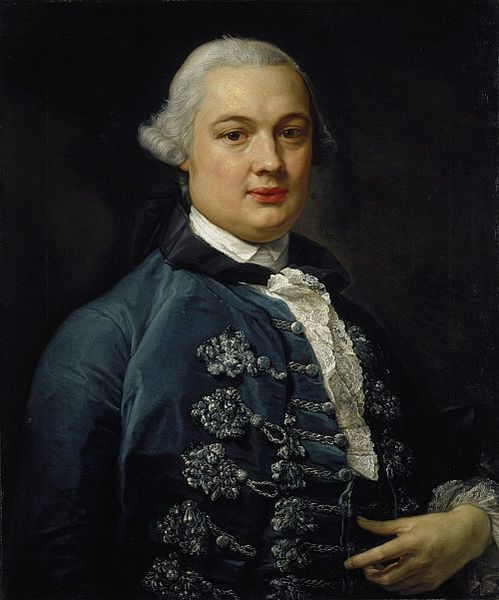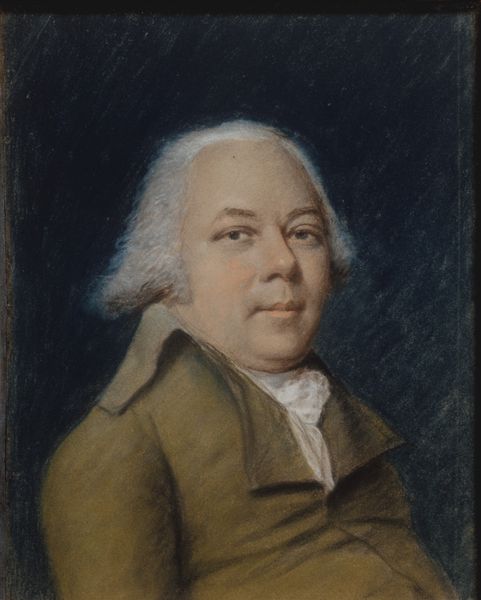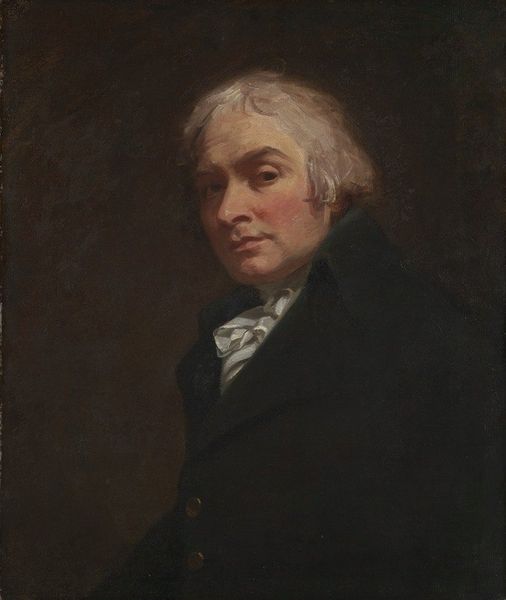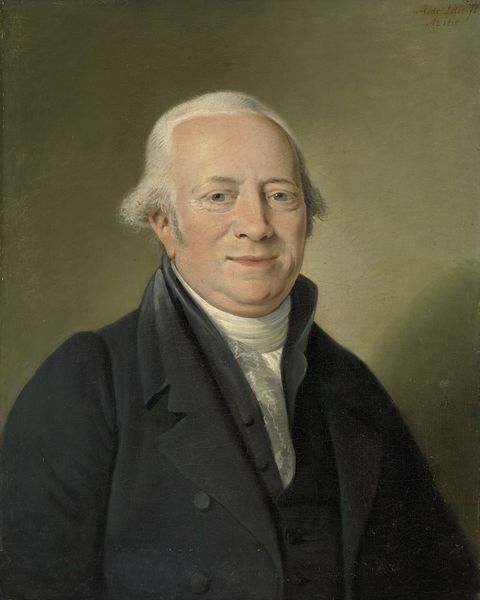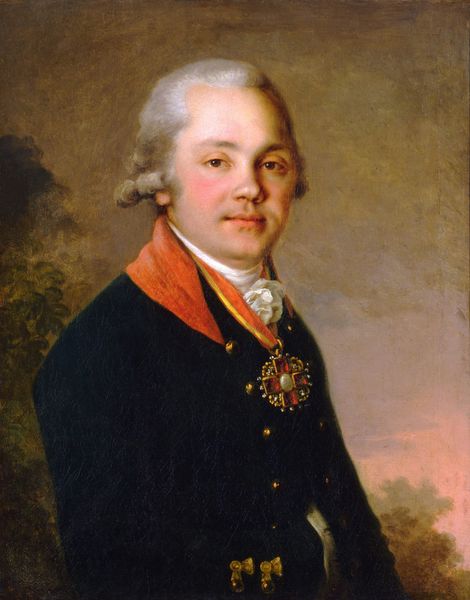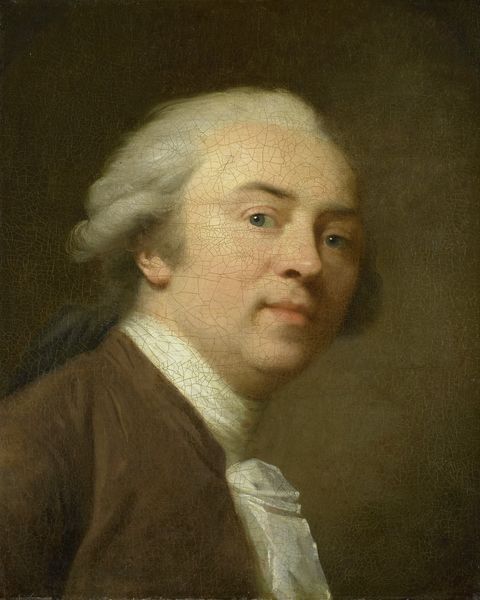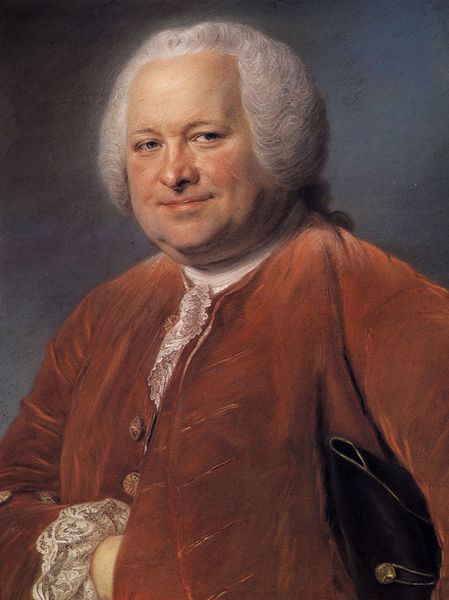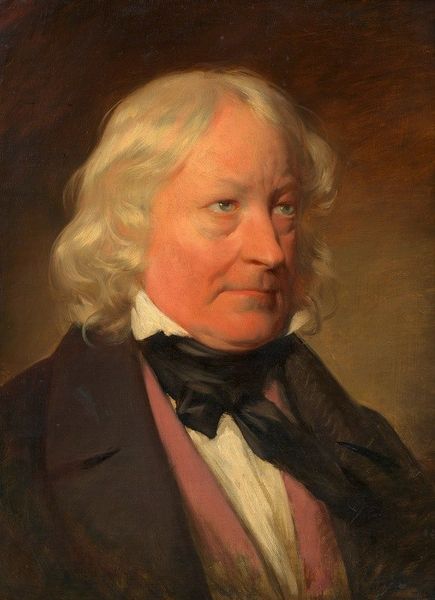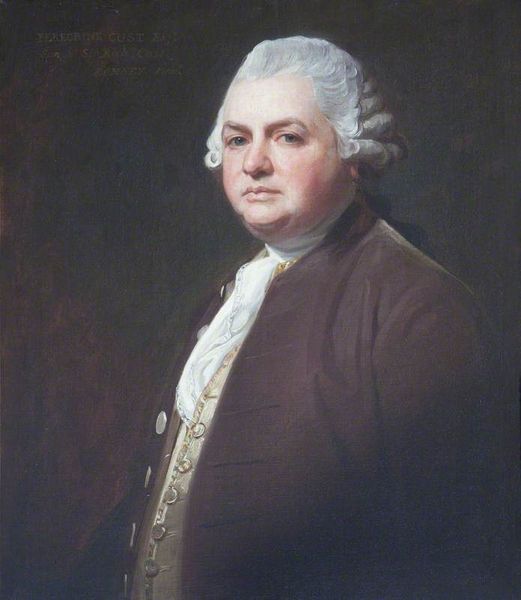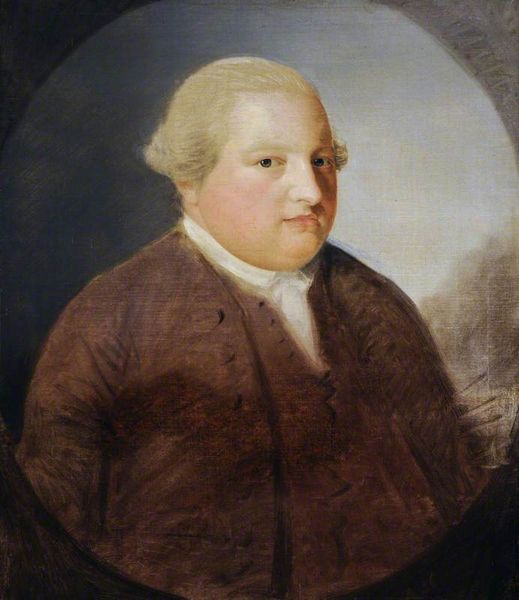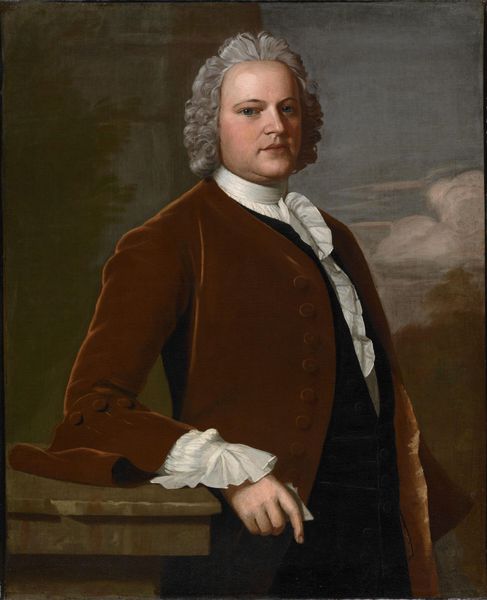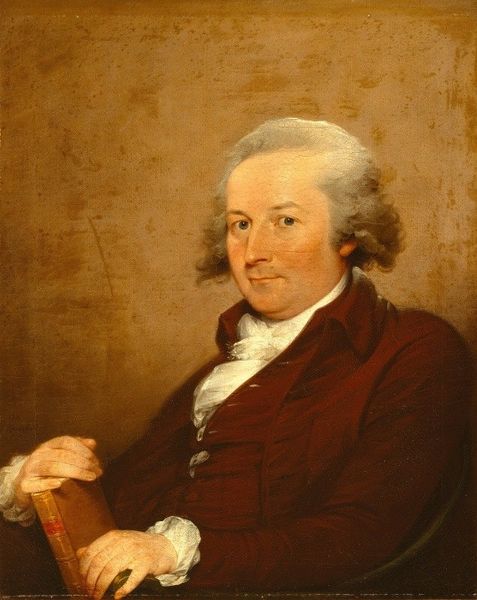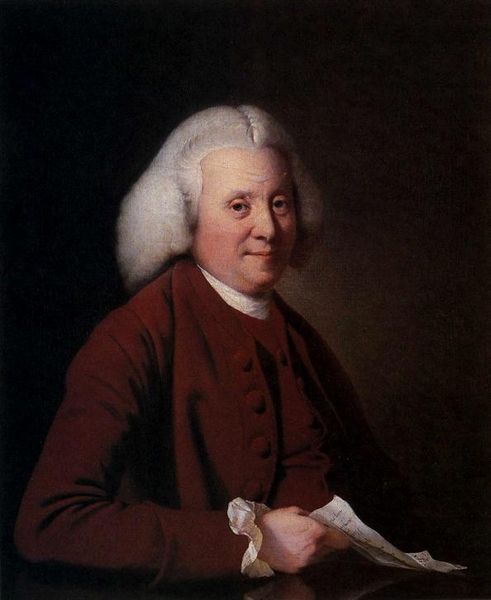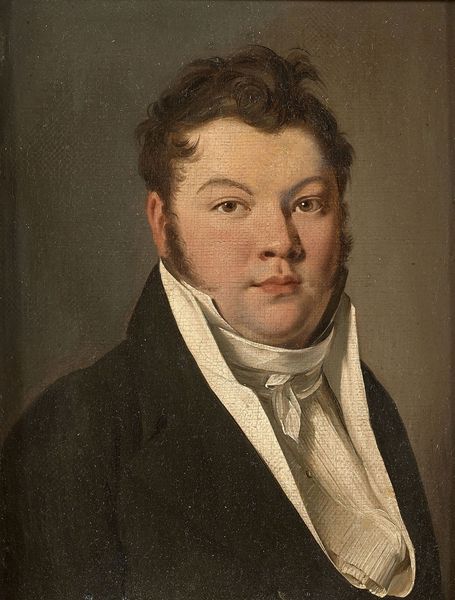
oil-paint
#
portrait
#
figurative
#
neoclacissism
#
portrait image
#
portrait
#
oil-paint
#
figuration
#
portrait reference
#
portrait head and shoulder
#
portrait drawing
#
facial portrait
#
portrait art
#
fine art portrait
#
celebrity portrait
#
digital portrait
Copyright: Public Domain: Artvee
Louis Léopold Boilly painted this Portrait of a Man at an unknown date. The first thing that strikes us is the use of light and shadow, a formal device employed to model the figure and create depth within what is essentially a flat surface. The soft illumination across the man's face contrasts sharply with the darker tones of his coat and the background, drawing our eye directly to his expression. Boilly's brushstrokes are smooth, almost invisible, which was characteristic of the academic style of the time. But look closer: this smoothness does not necessarily equate to realism. The man’s features are somewhat generic; the portrait is less about individuality and more about a type, perhaps representing a certain social class or profession. The emphasis on clarity and form over expressive brushwork aligns with the Enlightenment ideals of reason and order. Notice how the composition is structured around a subtle asymmetry, with the figure slightly off-center, engaging us, not with a fixed meaning, but rather with the suggestion of a narrative, a moment captured. Boilly’s technical skill and adherence to formal conventions prompt us to question not just who this man was, but what he represents within the broader cultural landscape of his time.
Comments
No comments
Be the first to comment and join the conversation on the ultimate creative platform.
